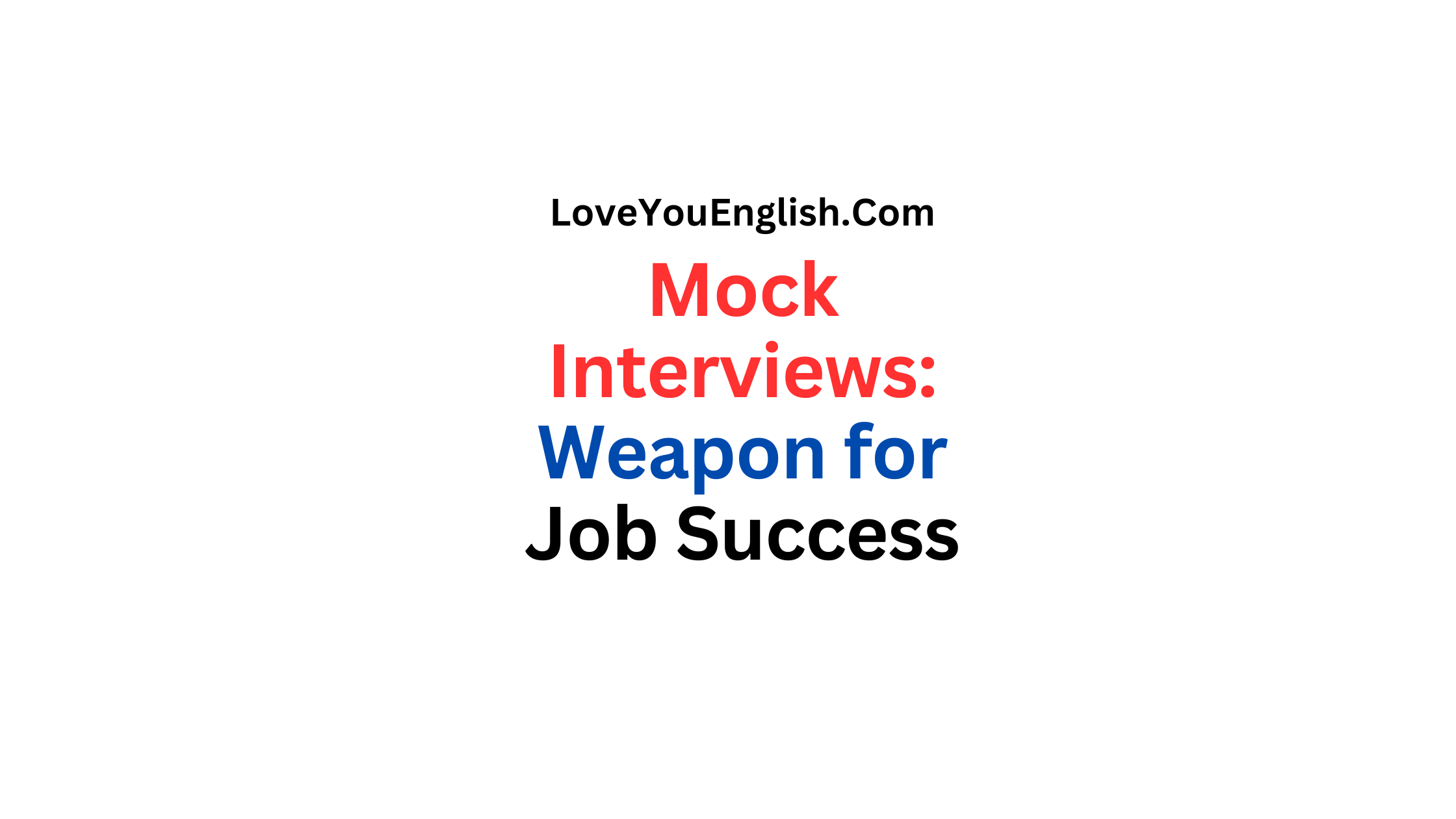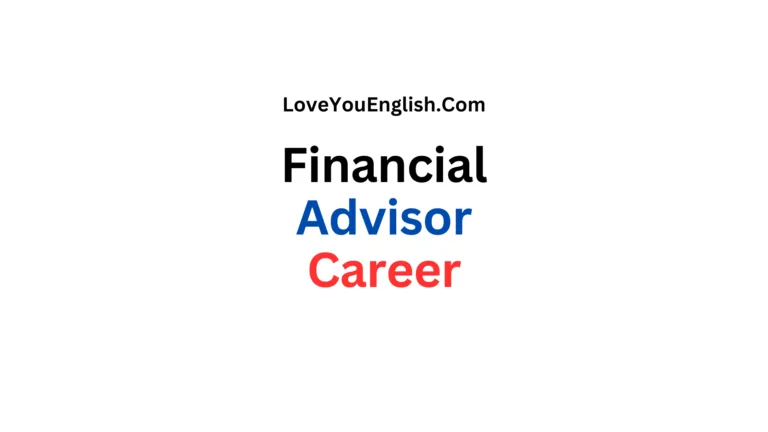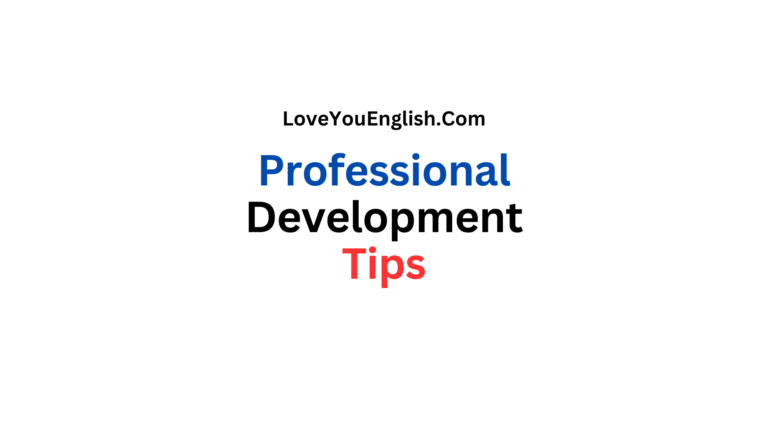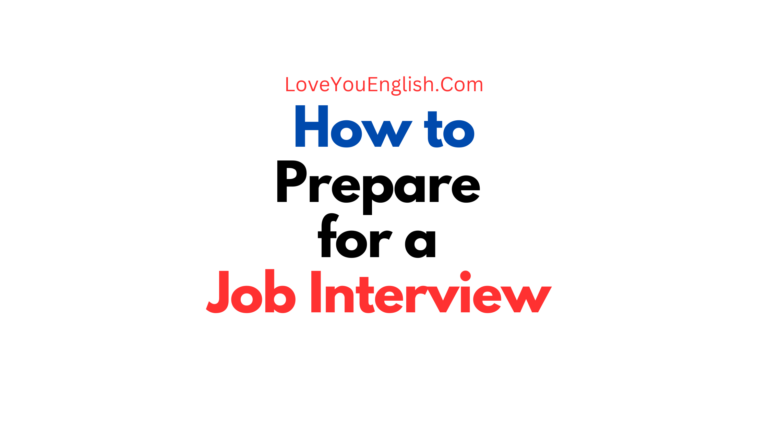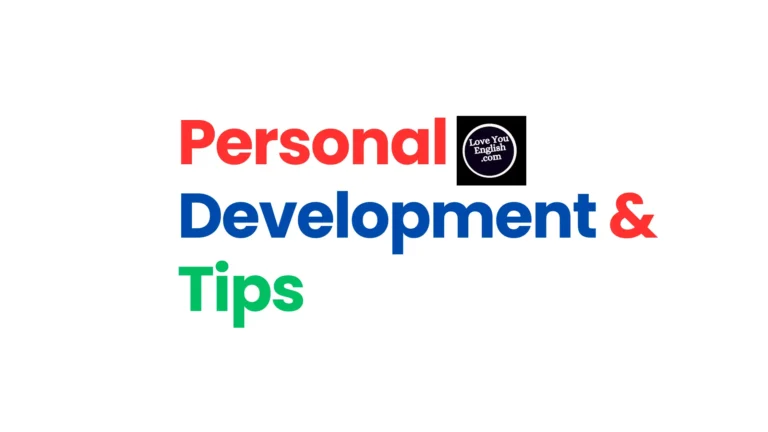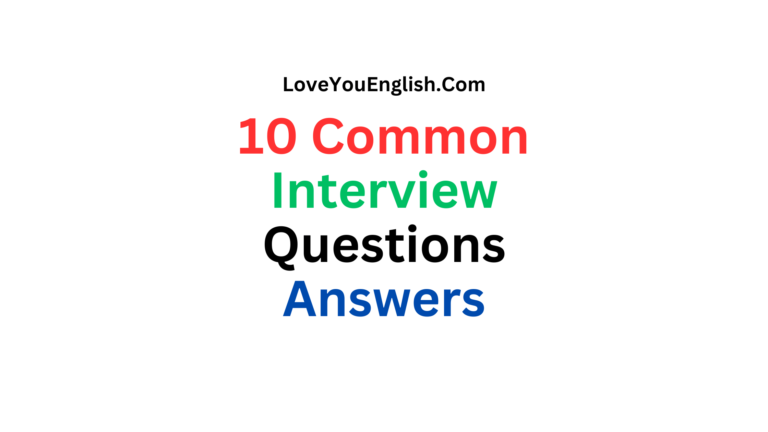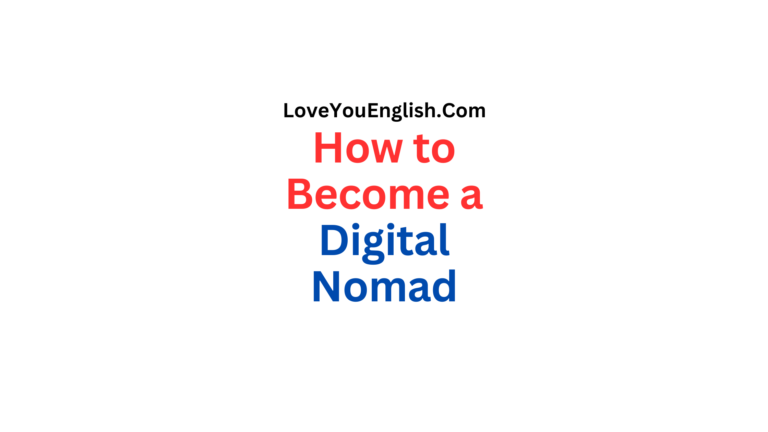Mock Interviews: Your Secret Weapon for Job Success
Mock Interviews: Your Secret Weapon for Job Success
Have you ever felt nervous about a job interview?
Do you worry about what questions you’ll be asked or how to answer them?
If so, you’re not alone. Many people find job interviews stressful.
But there’s a great way to prepare and feel more confident: mock interviews.
What is a Mock Interview?
A mock interview is a practice interview. It’s like a rehearsal for a real job interview.
In a mock interview, you pretend you’re having an actual interview for a job you want.
Someone else plays the role of the interviewer. They ask you common interview questions, and you answer as if it were a real interview.
The goal of a mock interview is to help you get ready for real interviews. It lets you practice your answers, work on your body language, and get feedback on how you do.
This way, when you go to a real interview, you’ll feel more prepared and less nervous.
Why Are Mock Interviews Helpful?
They help you feel less nervous:
The more you practice something, the less scary it becomes. By doing mock interviews, you get used to the interview process. This can help calm your nerves when it’s time for a real interview.
You can practice your answers:
In a mock interview, you can try out different ways to answer common questions. This helps you find the best way to talk about your skills and experiences.
You get feedback:
After a mock interview, the person playing the interviewer can tell you how you did. They might suggest ways to improve your answers or your body language. This feedback is really valuable for getting better at interviews.
You can work on your body language:
How you sit, your facial expressions, and your hand movements are all important in an interview. In a mock interview, you can practice these things and get tips on how to appear more confident and professional.
You can test your outfit:
A mock interview is a great chance to try on the clothes you plan to wear to a real interview. You can make sure they’re comfortable and appropriate.
You can practice in different settings:
You can do mock interviews in person, over the phone, or on video calls. This lets you get ready for different types of real interviews.
Explore more topics:
- 6 Ways to Keep a Conversation Going
- Working Cultures in the USA, United Kingdom, and Australia
- What to Wear to an Interview: Nailing the Dress Code
- How to Start Networking as a Freelance Writer
- Ways to Start a Conversation with Anyone: A Simple Guide
How to Set Up a Mock Interview
Setting up a mock interview is easier than you might think. Here are some ways to do it:
Ask a friend or family member:
Someone you know can play the role of the interviewer. Give them a list of common interview questions to ask you.
Use your school’s career center:
If you’re a student, your school probably has a career center that offers mock interview services.
Join a job club:
Many job clubs or networking groups offer mock interview practice for their members.
Use online services:
There are websites and apps that let you practice interviews with AI (artificial intelligence) or with real people online.
Work with a career coach:
A professional career coach can give you a very realistic mock interview experience and provide expert feedback.
What Happens in a Mock Interview?
A mock interview usually follows the same format as a real job interview.
Here’s what typically happens:
Greeting and small talk:
The interviewer will greet you and might make some small talk to help you feel at ease.
Questions about your background:
They’ll ask about your education, work history, and skills.
Behavioral questions:
These are questions about how you’ve handled situations in the past.
For example, “Tell me about a time when you solved a difficult problem at work.”
Questions about the job and company:
They might ask why you want the job or what you know about the company.
Your questions:
At the end, you’ll have a chance to ask questions about the job or company.
Wrap-up:
The interviewer will thank you and end the interview.
After the mock interview, the person playing the interviewer will give you feedback on how you did.
They might talk about your answers, your body language, or how well you explained your skills and experiences.
Common Questions in Mock Interviews
Here are some questions you might be asked in a mock interview:
- Tell me about yourself.
- Why do you want this job?
- What are your greatest strengths?
- What is your biggest weakness?
- Where do you see yourself in five years?
- Why should we hire you?
- Tell me about a time when you faced a challenge at work. How did you handle it?
- How do you handle stress and pressure?
- Describe a time when you worked as part of a team.
- What do you know about our company?
Remember, these are just examples. The questions in your mock interview should be tailored to the type of job you’re applying for.
How to Prepare for a Mock Interview
To get the most out of your mock interview, it’s important to prepare.
Here are some steps you can take:
Research the company:
Pretend you’re interviewing for a real company. Look up information about them online. Learn about their products, services, and values.
Review the job description:
If you’re practicing for a specific job, study the job posting. Think about how your skills match what they’re looking for.
Prepare your answers:
Think about how you’ll answer common interview questions. Write down some key points for each answer.
Practice your introduction:
The “Tell me about yourself” question often comes first in interviews. Prepare a short (1-2 minute) summary of your background and skills.
Come up with questions to ask:
At the end of most interviews, you’ll have a chance to ask questions. Prepare a few thoughtful questions about the job or company.
Dress the part:
Wear what you would wear to a real interview. This helps you get in the right mindset and ensures your interview outfit is comfortable.
Bring your resume:
Have a copy of your resume with you, just like you would in a real interview.
Tips for a Successful Mock Interview
Here are some tips to help you do your best in a mock interview:
Take it seriously:
Treat the mock interview like it’s real. This will help you get the most benefit from the practice.
Be on time:
Arrive a few minutes early, just as you would for a real interview.
Use good body language:
Sit up straight, make eye contact, and smile. These non-verbal cues are important in interviews.
Listen carefully:
Pay attention to the questions and answer them fully. It’s okay to ask for clarification if you need it.
Use specific examples:
When answering questions about your skills or experiences, give concrete examples from your past work or education.
Be positive:
Even when talking about challenges or weaknesses, try to frame things in a positive way.
Don’t rush:
It’s okay to take a moment to think before answering a question. This is better than rushing into an answer you haven’t thought through.
Be yourself:
While it’s good to be professional, don’t try to be someone you’re not. Authenticity is important in interviews.
What to Do After a Mock Interview
The mock interview isn’t over when the questions end. Here’s what to do afterwards:
If the person hasn’t offered feedback, ask for it. Find out what you did well and what you could improve.
Take notes:
Write down the feedback while it’s fresh in your mind. This will help you remember what to work on.
Reflect on your performance:
Think about how you felt during the interview. Were there questions you found difficult? Areas where you felt confident?
Practice your weak spots:
If there were questions you struggled with, work on better answers for next time.
Say thank you:
If someone took the time to give you a mock interview, thank them. You might want to send a thank-you email, just as you would after a real interview.
Schedule another mock interview:
The more you practice, the better you’ll get. Try to do several mock interviews before your real job interviews.
Common Mistakes in Mock Interviews
Here are some mistakes people often make in mock interviews.
By knowing these, you can try to avoid them:
Not taking it seriously:
Some people don’t put in full effort because it’s “just practice.” But the more realistic you make it, the more you’ll benefit.
Giving vague answers:
It’s important to give specific examples when talking about your skills and experiences.
Not knowing about the company:
In a real interview, you should always research the company beforehand. Practice this in your mock interviews too.
Talking too much (or too little):
Try to give complete answers, but don’t ramble. A good answer is usually about 1-2 minutes long.
Remember that body language and tone of voice are important too.
Not asking questions:
At the end of the interview, you should have some questions ready to ask the interviewer.
Being too negative:
Avoid speaking badly about past employers or focusing too much on negative experiences.
Not following up:
Practice writing a thank-you note after your mock interview, just as you would after a real one.
Mock Interviews for Different Situations
Mock interviews can be useful for many different situations, not just traditional job interviews.
Here are some examples:
Phone interviews:
Many companies start with phone interviews. You can practice these by doing a mock interview over the phone.
With more companies using video calls for interviews, it’s helpful to practice in this format. You can work on things like where to look and how to set up your background.
Panel interviews:
Sometimes you might be interviewed by a group of people. You can practice this by having several friends act as a panel of interviewers.
Behavioral interviews:
These focus on how you’ve handled situations in the past. You can practice telling stories about your experiences.
Technical interviews:
If you’re applying for a job that requires specific technical skills, you can practice explaining these skills in a mock interview.
Academic interviews:
If you’re applying to college or graduate school, you can use mock interviews to prepare for admissions interviews.
Promotion interviews:
Even if you’re already employed, mock interviews can help you prepare to interview for a higher position within your company.
The Benefits of Regular Mock Interview Practice
Doing mock interviews isn’t just for when you have a real interview coming up.
Regular practice can have many benefits:
Increased confidence:
The more you practice, the more confident you’ll feel in real interviews.
Better communication skills:
Mock interviews help you learn to express your thoughts clearly and concisely.
Self-awareness:
You’ll learn more about your strengths and areas for improvement.
Reduced stress:
When you’re well-practiced, real interviews become less stressful.
Faster thinking:
Regular practice helps you think on your feet and come up with good answers quickly.
Improved body language:
You’ll become more aware of your non-verbal communication and how to use it effectively.
Better question-asking skills:
You’ll get better at coming up with thoughtful questions to ask at the end of interviews.
Conclusion
Mock interviews are a powerful tool for anyone looking to improve their interview skills.
They give you a chance to practice in a low-pressure environment, get feedback, and build your confidence.
Whether you’re just starting your career, changing jobs, or aiming for a promotion, mock interviews can help you perform your best when it really counts.
Remember, the key to successful interviews is preparation.
By using mock interviews as part of your job search strategy, you’re giving yourself a big advantage.
You’ll walk into real interviews feeling more confident, prepared, and ready to show why you’re the best person for the job.
So don’t wait for a real interview to come up. Start practicing with mock interviews today.
The more you practice, the better you’ll get, and the closer you’ll be to landing your dream job.
Good luck with your interviews!

